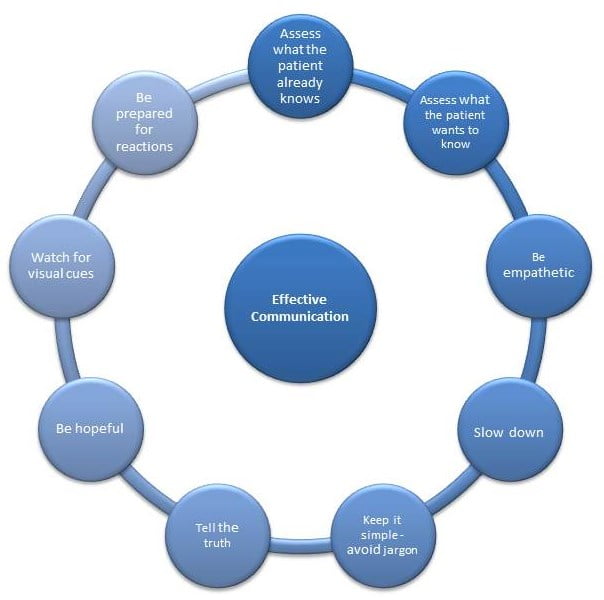Communication in Healthcare – (pre-nursing)
This is a sample healthcare assignment help prepared for a student studying at a University in Ireland. The assignment is focused on the topic of the importance of Communication in Healthcare. The assignment covers why effective communication in important in nursing and healthcare, and also discusses the Health and Safety Legislation, 2005, w.r.t Ireland.
Note: Looking for Assignment Help in Ireland? Contact us.
Table of Contents
Communication is no doubt essential tool for any profession, but in nursing and healthcare, it is of utmost importance. Effective communication results a frictionless operation in an organisation. Every individual who is in any part involve with a running organisation understands this and the importance of hierarchy in the organisation. Healthcare industry deals with a person overall physical health and so it becomes a necessity to have a strong communicational skill (Foronda, 2016). Nursing is the primal part of healthcare and nurses are the staffs who are responsible for stabilizing and channelizing a person health, so strong communication bond plays a vital role in strengthen a person health.
Patients who are admitted in hospitals are reliable of the nurses. It is the sole responsibility of the nurse to take care of the patients from entering in their room till the patient gets discharged. Since caring is the main part hence both verbal and non-verbal communications help in the health recovery of a patient. Apart from patient conversation it is the duty of a nurse to co- ordinate through the fellow staffs and also to handover the reports and conditions to the doctor, so communication forms a shell in overall development of the nurse, the patient, the hospital and the industry at a larger scale (Gorman, 2003).
Fig 1
Effective communication skills

Notes- There are many skills in communication out of which mainly are stated above.
Source link- https://www.physio-pedia.com/Communication_in_Healthcare
Communication in nursing may be defined as the exchange of information, feelings and thoughts, documents as well as data from a patient to a doctor and with the fellow staffs. A patient relies fully on the nurse and share their fears, concerns and feelings. Effective professional communication helps in understanding and replying to them so that the diagnosis as well as the necessary procedures of revival of health can be done properly. Communication is just not limited to the exchange of thoughts but also in terms of the experiences. A nurse understands the patients as well as their experiences they express (Ratna, 2019).
You may also like to read Nursing Assignment Help: Case Study on Traumatic Brain Injury Recovery
Communication in healthcare industry is more likely a bilateral relation than a unilateral one, so any failure or a Chinese whisper may result in the adverse health effect of a patient. It can also result in the negative conclusions as well as in the attitude. While the verbal communication is related to the speaking, non-verbal communication in nursing is determined by their gestures, postures, and even by some physical barriers like distance. Skilled Nurses knows when it is prudent to communicate in verbal and when to have a non-verbal communication.
Effective communication serves as a tool for skilled nursing staffs due to which they understand that every person communicates differently and nobody is same in any manner. Hence, it is a challenge for them to coup up with every patient they care (McArthur, 2016). Speaking is one [part of the communication but the more dominant communication in healthcare industry is listening. Skilled nurses are good listeners and they are all ears when they are talking with their patients. They listen their problems attentively and while addressing those problems they make sure that they have covered all the necessary part of the conversation to their higher authorities. Moreover, they also listen to what doctor has prescribed to patients and to give strong follow up for that.
Nurse and patient relation begin with the first contact and lasts for the care cycle. It is duty of the nurse to ensure that their patient must feel comfortable, peaceful and their conversation and problem remains confidential. Hence, time plays an important role in the communication too. Skilled nurse knows that the less time in any work yields higher productivity and for that they make sure that they are not engaged in only one work as their work are multidimensional.
It is the duty of nursing staff to communicate in the easiest terms and language that is understandable by their patients. They should know that the language used are very positive and the essence of their conversation results in the health recovery of the patient. They must avoid using medical terminologies that are not understandable by patients. While communicating the terms and the reports it is very crucial that nurses should maintain the eye contact with their patients. Confidence should be maintained throughout explanation so that patient can easily get what they are being communicated.
Communication may seem easy but it requires lots of time, energy, education and skill in honing the attributes of a skilled nursing staff. Since, they are the front liners so they must equip with the skill of professional and good communicational skills and attributes. There are many benefits of an effective communications some of which are (Pirnejad, 2008),
- Understanding the immediate needs of patients and their health and mental conditions- Effective communication results in quickly grasping the patients needs and their health
- Understanding the emotional state of the patients- Due to communication nurses gets aware of the emotional condition of the patients
- Grasping the social determinants of the health and healthcare industry- Strong communication results in determining and upgrading the new notifications of healthcare industry really fast
- Tracking changes in the health- Strong communication helps them making sure the results leads to a positive change.
- Identifying the special needs of every patient and resolve them as much as they can
- Advocating for their patients- Nurses are the advocates of their patients and they ensure the doctors that the patient is recovering and also provides the quantitative data as how much they are.
Health and Safety Legislation, 2005
Apart from effective communication, Ireland also focus on its health and safety legislation which provides various guidelines for both employer and employee at the workplace. These legislations provide their duties and responsibilities which helps in effective running of an organisation. The legislation provides health and safety during Covid Pandemic, certifies some rules on health and safety, in which employer ensures that the workplace is equipped with upgraded and well functional plant and machinery and he should also provide necessary trainings to his employees. The employee duties include taking care of themselves and another fellow employee too. The legislation talks about identifying any hazards in the workplace and identifying any risks arising from such hazards. Regarding this, it is the duty of employer to prepare a safety statement.
You may also like reading Analysis of Work Environment at KPMG | Human Resource Assignment Sample
References
| Chichirez, C.M. and Purcărea, V.L., 2018. Interpersonal communication in healthcare. Journal of medicine and life, 11(2), p.119. https://www.ncbi.nlm.nih.gov/pmc/articles/PMC6101690/ Foronda, C., MacWilliams, B. and McArthur, E., 2016. Interprofessional communication in healthcare: An integrative review. Nurse education in practice, 19, pp.36-40. https://www.sciencedirect.com/science/article/abs/pii/S1471595316300208 Gorman, P.N., Lavelle, M.B. and Ash, J., 2003. Order creation and communication in healthcare. Methods of information in medicine, 42(04), pp.376-384. https://www.thieme-connect.com/products/ejournals/abstract/10.1055/s-0038-1634233 Ratna, H., 2019. The importance of effective communication in healthcare practice. Harvard Public Health Review, 23, pp.1-6. https://www.jstor.org/stable/48546767 Pirnejad, H., Niazkhani, Z., Berg, M. and Bal, R., 2008. Intra-organizational communication in healthcare. Methods of Information in Medicine, 47(04), pp.336-345. https://www.thieme-connect.com/products/ejournals/abstract/10.3414/ME0502 Vermeir, P., Vandijck, D., Degroote, S., Peleman, R., Verhaeghe, R., Mortier, E., Hallaert, G., Van Daele, S., Buylaert, W. and Vogelaers, D., 2015. Communication in healthcare: a narrative review of the literature and practical recommendations. International journal of clinical practice, 69(11), pp.1257-1267. |

